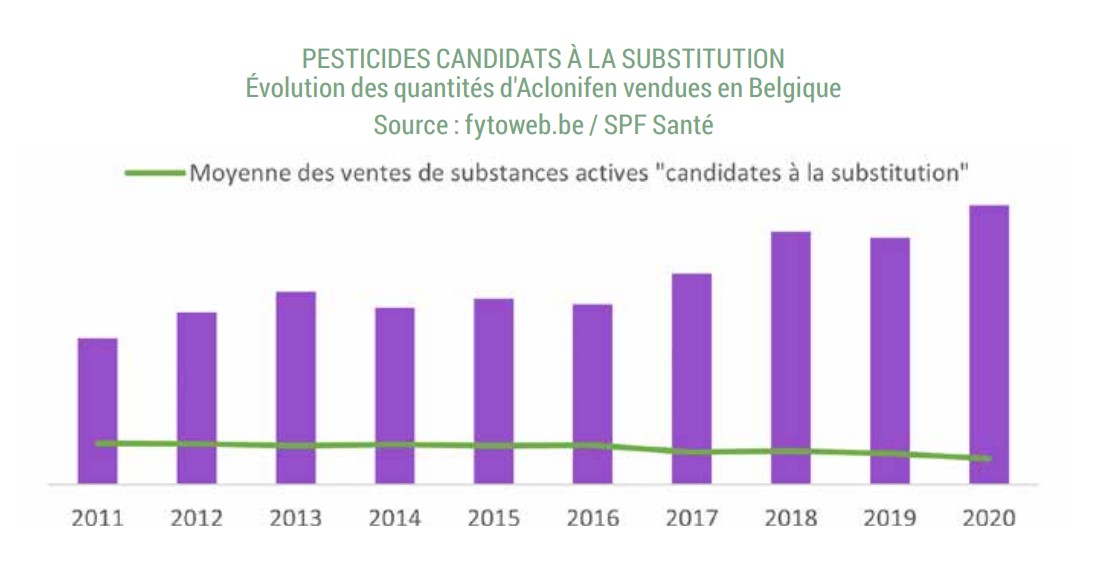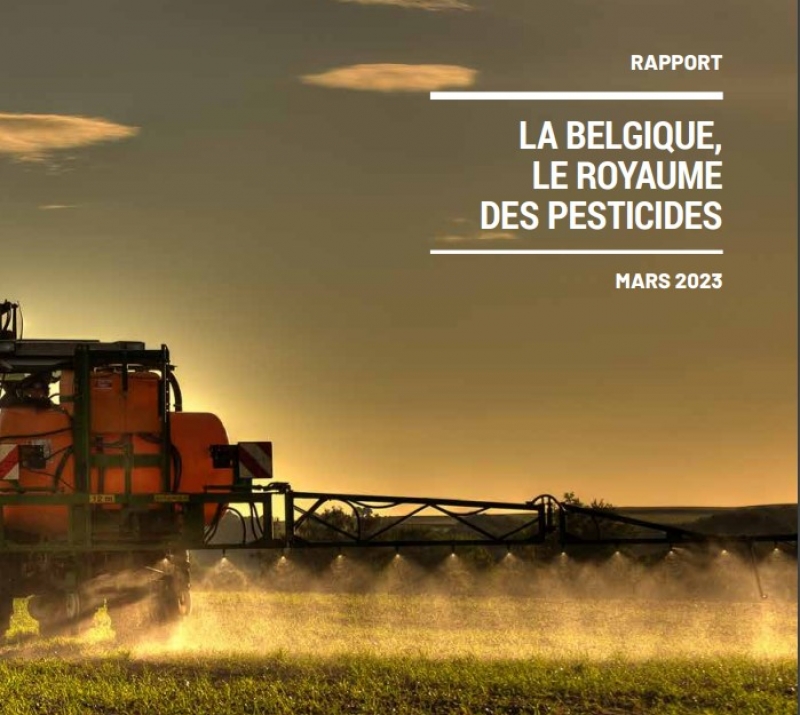One in four pesticide authorisations in Belgium are for products that are potentially carcinogenic, toxic for reproduction, harmful to infants or have endocrine-disrupting effects (hormone disruption). This is exposed in our new report, in cooperation with our member Nature & Progrés Belgique. The Belgian practice is not in line with the European legislation, that clearly defines the obligations of the Member States when assessing the risks and authorising pesticides. States, including Belgium, must put the protection of the population before the interests of agriculture and refrain from authorising products that could harm human and animal health or the environment.
More than 300 of the most dangerous pesticide products are still authorised when they should have disappeared from the Belgian landscape. Despite promises of the federal administration, none of these pesticides has been replaced by safer alternatives. For 90% of them, Belgium does not comply with the European legislation requiring substitution, which has been in force for over seven years.
On top of that, Belgium has regularly issued derogations for pesticides that are highly toxic to human health. When a pesticide is banned at the European level for its excessive toxicity, the administration improperly provides temporary derogations. According to our recent report, Belgium ranks 8th among European countries providing the most derogations for pesticides normally banned in Europe. A groundbreaking ruling by the European Court of Justice in January this year declared this practice contrary to EU law.
Our new report “Belgium, kingdom of pesticides’ makes a series of recommendations to bring certain practices of the Belgian administration that are incompatible with a high level of protection into line with the law, and thus better protect the health of Belgian citizens and their environment.

